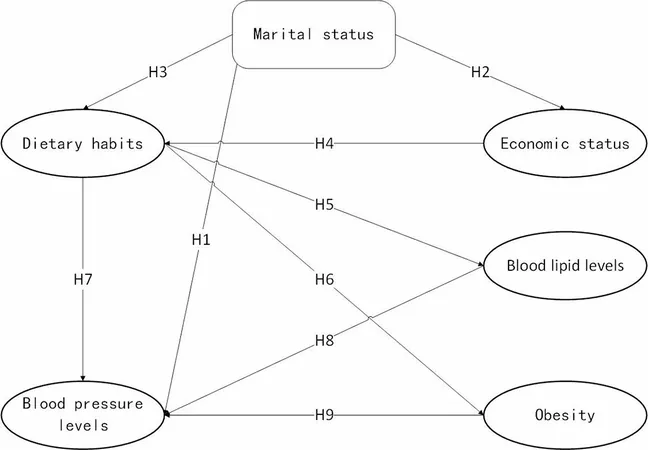
Shocking Disparities Uncovered in Alzheimer's Trial: Racial Differences in Screening Failure
2025-07-31
Author: John Tan
Alarming Findings from Phase 2 Trial of Posdinemab
In a groundbreaking revelation from the ongoing phase 2b Auτonomy study, researchers have unveiled significant racial differences in screening failures among participants testing posdinemab (JNJ-63733657), an experimental monoclonal antibody aimed at combating Alzheimer’s disease. This study, presented at the prestigious Alzheimer’s Association International Conference in Toronto, found that Black and African American participants experienced an unprecedented 86.4% failure rate during screening, substantially higher than White participants, who had an 80.5% failure rate.
Who Didn't Make the Cut?
Out of 2,563 participants screened for the trial, a staggering 79.6% were unable to meet the eligibility criteria. Notably, the primary reason for failing the screening was the absence of elevated levels of phosphorylated tau217, a critical biomarker needed for inclusion. Alarmingly, 35.3% of Black participants failed this key requirement, while White and Asian participants followed closely behind at 38.6% and 26.7% respectively.
The Striking Reason for Exclusions
Participants could also be disqualified for not meeting clinical criteria for early Alzheimer’s, which includes showing signs of cognitive decline and specific scoring metrics. Here, the disparity continues, with Black participants nearly twice as likely—21.6%—to fail this criterion compared to just 12.1% of White participants and 18.0% of Asian participants.
A Broader Issue: Racial Disparities in Alzheimer’s Diagnosis
The stark differences in screening pass rates highlight persistent racial disparities in the detection and diagnosis of Alzheimer’s disease. Data reveals that Black older adults are about twice as likely to experience Alzheimer’s compared to non-Hispanic Whites, and Hispanic older adults also have alarmingly high rates.
Despite these figures, diagnoses among these groups remain strikingly low; a study found that only 19.3% of Black participants with probable dementia had received a formal diagnosis, in stark contrast to 31.4% of White participants. Factors such as healthcare access, interpretation of symptoms, and referral pathways may play a significant role, ultimately contributing to the elevated screening failure rates among marginalized communities.
The Need for More Inclusive Trials
Although the investigators caution that the small number of Black participants in the study limits the generalizability of these findings, they underscore urgent issues regarding inclusivity in clinical trials. The study underlines the necessity for better representation and adaptations to address barriers faced by minority communities.
A Glimpse into Posdinemab's Potential
Posdinemab, a tau-directed antibody, has the potential to transform Alzheimer’s treatment by targeting the phosphorylated tau protein implicated in the disease's progression. This innovative trial was also the first to incorporate a plasma p217tau assay as a preliminary screening method, which previously reduced the need for PET imaging by nearly 49%.
Moving Forward: Rethinking Trial Participation
However, the use of strict biomarker thresholds such as plasma p217tau levels for screening could unintentionally reinforce barriers to trial access, especially if biomarker levels vary across racial groups. As such, the authors advocate for a nuanced analysis of screening failures among different populations, which could illuminate underlying biological and clinical differences and pave the way for a more inclusive approach to Alzheimer’s research.


 Brasil (PT)
Brasil (PT)
 Canada (EN)
Canada (EN)
 Chile (ES)
Chile (ES)
 Česko (CS)
Česko (CS)
 대한민국 (KO)
대한민국 (KO)
 España (ES)
España (ES)
 France (FR)
France (FR)
 Hong Kong (EN)
Hong Kong (EN)
 Italia (IT)
Italia (IT)
 日本 (JA)
日本 (JA)
 Magyarország (HU)
Magyarország (HU)
 Norge (NO)
Norge (NO)
 Polska (PL)
Polska (PL)
 Schweiz (DE)
Schweiz (DE)
 Singapore (EN)
Singapore (EN)
 Sverige (SV)
Sverige (SV)
 Suomi (FI)
Suomi (FI)
 Türkiye (TR)
Türkiye (TR)
 الإمارات العربية المتحدة (AR)
الإمارات العربية المتحدة (AR)